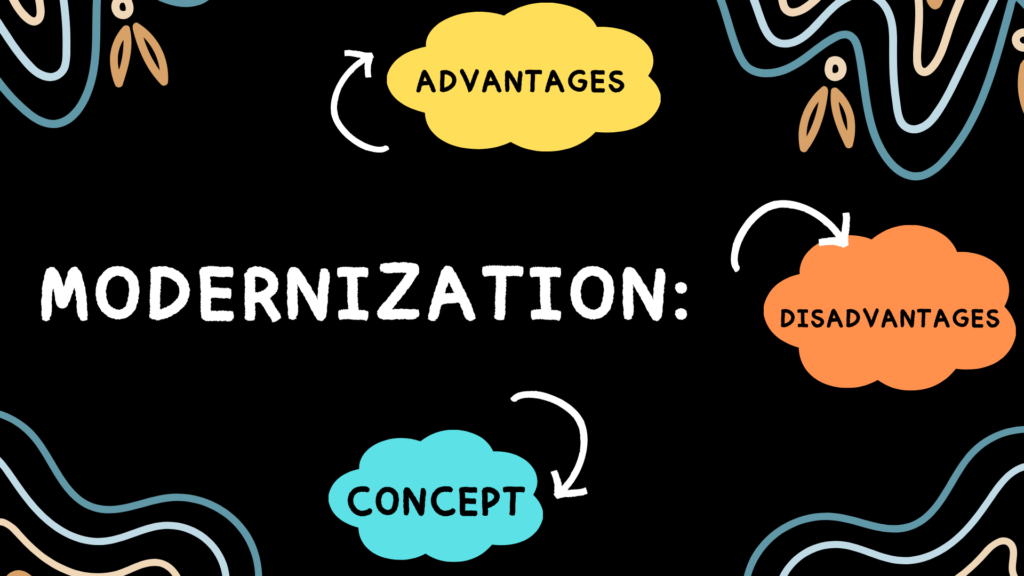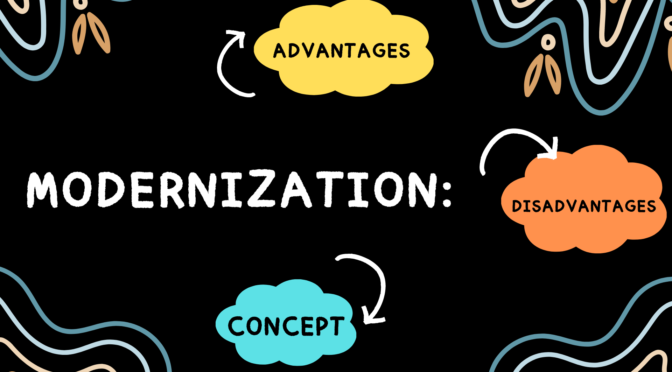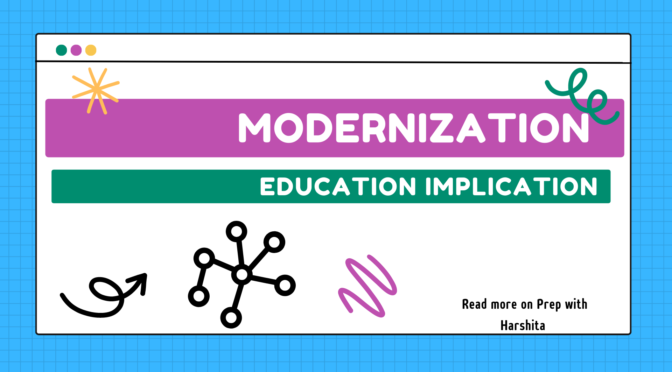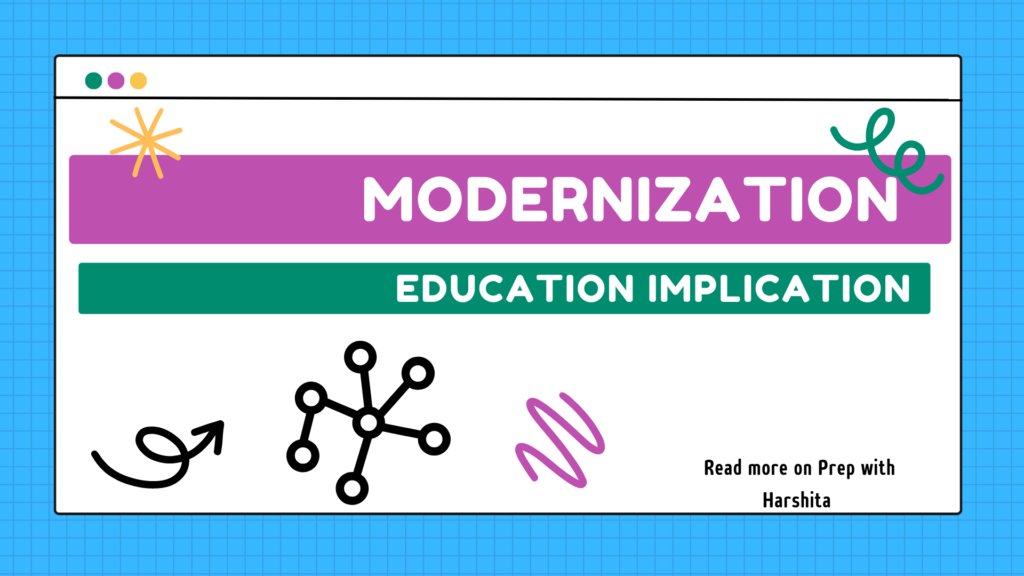Modernization refers to the process of adopting modern technologies, practices, and attitudes in various aspects of society, including economics, politics, culture, and infrastructure. While modernization brings about numerous advantages, it also has its share of disadvantages.
Here are detailed explanations of the advantages and disadvantages of modernization:
Advantages of Modernization:
- Economic Growth: Modernization often leads to increased economic growth and development. By embracing technological advancements and implementing efficient systems, productivity and innovation are enhanced, leading to higher levels of economic output and improved standards of living.
- Improved Infrastructure: Modernization typically involves the development of infrastructure, such as transportation networks, communication systems, and energy facilities. Upgraded infrastructure facilitates trade, connectivity, and the efficient movement of goods, services, and people.
- Technological Advancements: Modernization promotes the adoption of new technologies, which can significantly enhance productivity, efficiency, and quality of life. Technological advancements in various sectors, including healthcare, agriculture, and manufacturing, can lead to improved services, increased production, and better living conditions.
- Education and Knowledge: Modernization often prioritizes education, leading to increased access to quality education and knowledge. Improved education systems enable individuals to acquire new skills, expand their knowledge, and contribute effectively to the development of society. Education also plays a crucial role in fostering innovation and critical thinking.
- Social and Cultural Changes: Modernization can bring about positive social and cultural changes. It may lead to increased gender equality, improved healthcare, greater awareness of human rights, and a broader outlook on cultural diversity. Modernization can help challenge traditional norms and promote inclusivity, tolerance, and social progress.
Disadvantages of Modernization:
- Socioeconomic Inequalities: Modernization can exacerbate socioeconomic inequalities. While it may bring prosperity to some segments of society, marginalized groups and disadvantaged regions may be left behind, leading to a widening wealth gap. Unequal access to resources, education, and opportunities can further deepen social divisions.
- Cultural Erosion: Rapid modernization can erode traditional cultures and values. The influence of globalized media, consumerism, and homogenized trends can undermine local customs, languages, and indigenous knowledge systems. This loss of cultural diversity can result in the loss of identity and a sense of belonging.
- Environmental Challenges: Modernization, particularly in its unchecked form, can have adverse environmental consequences. Industrialization, urbanization, and increased consumption patterns contribute to pollution, deforestation, habitat destruction, and climate change. These environmental challenges can pose significant threats to ecosystems and human well-being.
- Disruption of Traditional Livelihoods: Modernization often leads to a shift from traditional livelihoods, such as agriculture or craftsmanship, to modern industries and services. While this can create new economic opportunities, it can also displace communities, disrupt local economies, and lead to unemployment or underemployment for those unable to adapt quickly.
- Loss of Community and Social Cohesion: As societies modernize, there can be a loss of community bonds and social cohesion. Traditional social structures and interpersonal relationships may weaken, and individualism and alienation can become more prevalent. This can have negative impacts on mental health and social harmony.
It is essential to recognize and address the disadvantages of modernization to ensure a balanced and sustainable approach that promotes inclusive development, preserves cultural diversity, and safeguards the environment. Policy interventions, equitable distribution of resources, and proactive measures to mitigate the negative impacts can help maximize the benefits of modernization while minimizing its downsides.
Also Read: Democracy and Education

Also Visit: Prep with Harshita



